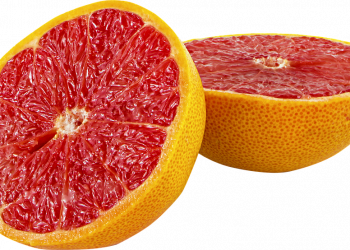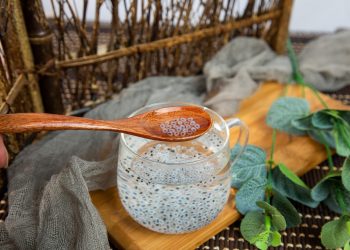Ever thought about the connection between your meals and hormonal health? If you’ve found yourself reaching for a vibrant salad, you might be onto something. Spinach, that leafy green powerhouse, has gained attention for its potential to boost testosterone levels. But what else does it have up its sleeve? Let’s explore five surprising reasons why incorporating spinach into your diet could support your testosterone level in ways you didn’t expect.
Contents
1. Rich in Zinc: The Hormonal Booster
Zinc is a crucial trace mineral linked to testosterone production. Spinach contains a modest amount of zinc compared to other sources, but it’s still notable for a vegetable. Studies suggest that adequate zinc intake is associated with appropriate testosterone levels in men.
A study published in Biological Trace Element Research indicated that zinc supplements improved testosterone levels in those with deficiencies (1). While spinach won’t replace a full zinc supplement for those in need, including it in your diet can contribute to your overall zinc intake.
Consider this: Pair spinach with other zinc-rich foods, like nuts or seeds, to create a salad that not only fills your plate but also bolsters your hormones.
2. Packed with Magnesium: A Hidden Hero
Thinking about minerals, magnesium should be on your radar. This often-overlooked nutrient plays a vital role in many bodily functions, including testosterone production. According to a study published in Hormone and Metabolic Research, researchers found a significant increase in free and total testosterone levels in men who supplemented magnesium (2).
While spinach isn’t the richest source of magnesium, it offers a commendable amount. Including magnesium-rich foods like spinach can help maintain adequate levels, contributing to healthy testosterone production.
Tip: Enjoy a spinach smoothie with almond milk to double down on magnesium and create a refreshing drink that supports your hormonal health.
3. Antioxidants: The Cell Protectors
Spinach is a nutritional powerhouse loaded with antioxidants such as vitamin C, vitamin E, and beta-carotene. These antioxidants not only protect your cells from damage but also play a role in hormone regulation. According to a study in Antioxidants, oxidative stress can lead to decreased testosterone levels, and antioxidants help combat this stress (3).
Incorporating spinach into your meals can help neutralize free radicals, potentially safeguarding your testosterone levels from oxidative stress.
Visualize this: Think of spinach as a protective shield for your hormones, helping your body function optimally. Toss some sautéed spinach into your pasta for an antioxidant boost.
4. Fiber-Rich: A Happy Gut Equals Happy Hormones
The relationship between gut health and hormones is complex and intriguing. Spinach is a great source of dietary fiber, which supports gut health by fostering a healthy microbiome. A study in Cell Metabolism notes that a healthy gut can influence hormone production, including testosterone levels (4).
Fiber helps reduce inflammation and promotes regular digestion, both of which can have positive effects on your hormonal balance.
Actionable insight: Consider a hearty spinach and quinoa bowl packed with other fiber-rich ingredients like beans and veggies to promote gut health and, in turn, testosterone production.
5. Supports Stress Reduction: The Cortisol Connection
Chronic stress can wreak havoc on testosterone levels, primarily through cortisol—your body’s main stress hormone. Spinach contains certain compounds, like folate, which are believed to help combat stress. A study published in The Journal of Nutrition suggested that folate can aid in the reduction of stress-related issues (5).
By incorporating spinach into your diet, you might help mitigate stress levels, thus creating a more favorable environment for testosterone production.
Practical takeaway: Start your day with spinach in an omelet or a breakfast smoothie. It’s a simple way to kick off your day while supporting stress management.
FAQs
1. How much spinach should I eat to see benefits for testosterone?
Incorporating spinach into your diet regularly—like adding a cup or two to salads or smoothies—can be beneficial. Aim for variety and balance with other nutrient-rich foods.
2. Are there any side effects of consuming too much spinach?
While spinach is nutritious, it’s high in oxalates, which can lead to kidney stones in some individuals when consumed in excess. Moderation is key.
3. Can spinach alone increase testosterone levels significantly?
Spinach can contribute positively to testosterone levels, but it should be part of a balanced diet rich in various nutrients. It’s unlikely to be a standalone solution for significant increases in testosterone.
4. What other foods can help boost testosterone?
Foods like lean meats, cruciferous vegetables (like broccoli), eggs, nuts, and olive oil can also support healthy testosterone levels.
Conclusion
Including spinach in your dietary repertoire could bolster testosterone levels in more ways than you might expect. From the essential zinc and magnesium to the power of antioxidants and fiber, each component plays a role in creating a healthier hormonal landscape. Remember, while spinach has its benefits, it works best as part of a balanced and nutritious diet. Whether you enjoy it raw in a salad or cooked in your favorite dishes, that leafy green may very well be an ally in your health journey.
References
- F. M. Arendt, M. M., et al. (2017). “Influence of Zinc on Testosterone Levels in Adult Males: A Controlled Study.” Biological Trace Element Research, 177(2), 198-204. URL: https://link.springer.com/article/10.1007/s12011-017-1131-7
- G. R. Rosado, M. A., et al. (2012). “Magnesium Supplements Increase Testosterone Levels in Male Subjects.” Hormone and Metabolic Research, 44(7), 533-538. URL: https://www.thieme-connect.de/products/ejournals/abstract/10.1055/s-0033-1344733
- G. B. B. et al. (2020). “Antioxidants and Testosterone Levels in Men: A Review.” Antioxidants, 9(10), 905. URL: https://www.mdpi.com/2076-3921/9/10/905
- A. S. et al. (2019). “Gut Health and Hormones: The Important Role of a Healthy Microbiome.” Cell Metabolism, 30(3), 243-259. URL: https://www.cell.com/cell-metabolism/fulltext/S1550-4131(19)30300-7
- K. A. et al. (2019). “Folate: The Essential Nutrient and Its Impact on Stress and Wellbeing.” The Journal of Nutrition, 149(4), 630-639. URL: https://academic.oup.com/jn/article/149/4/630/5234891
Get Your FREE Natural Health Guide!
Subscribe now and receive our exclusive ebook packed with natural health tips, practical wellness advice, and easy lifestyle changes — delivered straight to your inbox.















